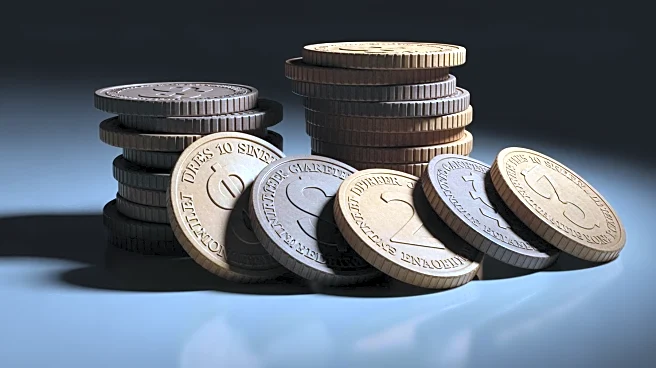What's Happening?
Hyperinflation is a severe form of inflation characterized by a rapid increase in prices, often exceeding 50 percent per month. This phenomenon is typically triggered by excessive money supply not backed by economic growth, leading to a dramatic devaluation
of currency and loss of purchasing power. Historical examples include Germany in the 1920s and Venezuela in recent years. Economists identify several signs of impending hyperinflation, such as rapid inflation rates, loss of confidence in government institutions, rising debts, and collapsing exchange rates. The Federal Reserve plays a crucial role in preventing hyperinflation in the U.S. by adjusting interest rates and regulating the money supply.
Why It's Important?
Hyperinflation can severely impact a country's economy, making it difficult for consumers to afford basic essentials and businesses to operate profitably. It can lead to social unrest and economic chaos, as seen in historical cases. For individuals, hyperinflation erodes savings and purchasing power, necessitating strategies to protect finances, such as investing in foreign stocks, real estate, or commodities like gold. The Federal Reserve's actions to maintain price stability are crucial in preventing such economic disasters in the U.S.
What's Next?
To control or stop hyperinflation, countries often need to establish a new currency or peg their currency to a stable benchmark like gold or a foreign currency. This helps restore confidence in the government's fiscal policies and stabilize the economy. The Federal Reserve continues to monitor inflation rates closely, ready to implement monetary policy tools to prevent hyperinflation from occurring in the U.S.
Beyond the Headlines
Hyperinflation not only affects economic stability but also has profound social and political implications. It can lead to a reallocation of wealth, with borrowers gaining at the expense of lenders, and can drive people away from monetary transactions towards barter systems. Historical cases show that hyperinflation can contribute to political upheaval and changes in government.

















